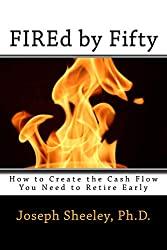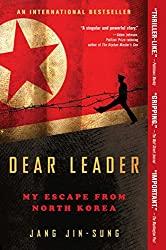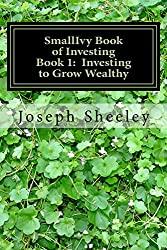Right now, government leaders in states and cities across the country, under the guidance of unelected health officials, are deciding which businesses are essential and can continue to operate and which are not and must close. Because few businesses have the cash reserves to pay for lost inventory, salaries, rents, loan interest, and other costs for very long at all, this is effectively deciding which businesses can live and continue to support their owners and provide jobs for their employees, while sentencing others to die, taking away countless hours of work done by the founders and putting people out-of-a-job. This should scare everyone.
(Note, this site contains affiliate links. As an Amazon Associate I earn from qualifying purchases. When you click on an affiliate link and buy something, The Small Investor will get a small commission for the referral. You are charged nothing extra for the purchase. This helps keep The Small Investor going and free. I don’t recommend any products I do not fully support. If you would like to help but don’t see anything you need, feel free to visit Amazon through this link and buy whatever you wish. The Small Investor will get a small commission when you do, again at no cost to you.)
For those businesses being forced to close, this is a government taking. The government is taking something of value (a successful business) for the benefit of the people (slowing of the spread of the virus). It would be different if the virus were just causing people to stay home more and business to slow. In that case it would be up to the businesses to figure out how they could adapt to the new climate and make it through, perhaps with significantly lower revenues. Some businesses would fail, while others would survive and come back stronger when the recession ended.
In this case, however, businesses are simply not allowed to operate. They don’t have the chance to figure out how they could stay open but change their process to adapt. Bars, music venues, hair salons, and barber shops are all closed because health officials have decided they can’t operate safely. In some cases, places like paint stores and garden centers are closed, not because they are any more dangerous than stores allowed to stay open like grocery stores, but because politicians want to reduce where people can shop to encourage people to stay at home.
The Constitution allows for government takings in a clause in the 5th Amendment often referred to as the “Takings Clause,” but it requires that the individual whose property is being seized to be paid fair value for that seizure:
Fifth Amendment: “No person shall be held to answer for a capital, or otherwise infamous crime, unless on a presentment or indictment of a Grand Jury, except in cases arising in the land or naval forces, or in the Militia, when in actual service in time of War or public danger; nor shall any person be subject for the same offense to be twice put in jeopardy of life or limb; nor shall be compelled in any criminal case to be a witness against himself, nor be deprived of life, liberty, or property, without due process of law; nor shall private property be taken for public use, without just compensation.“
Normally this is used to take someone’s house to build a road under eminent domain, but in this case we’re taking someone’s business for the sake of public health. Note that this is not like a business that is operating unsafely. In that case the business can make changes to comply with safety regulations and remain open. Here, businesses that sell the wrong things are simply told to close. What is deemed “essential” and “non-essential” is capricious and political. For example, in Michigan, liquor stores, weed dispensaries, and lottery tickets, all of which generate high tax revenues, are deemed “essential,” while churches, stores that sell paint, and stores that sell seeds are not.

(If you enjoy The Small Investor and want to support the cause, or you just want to learn how to become financially independent, please consider picking up a copy of my new book, FIREd by Fifty: How to Create the Cash Flow You Need to Retire Early This is the instruction manual on how to become financially independent.)
Since these businesses are being taken by governments for public use, the owners should be provided with just compensation. This is something that a lot of governors and citizens probably haven’t thought about, assuming that the business owners would just take the loss while everyone else just went along their merry way. But the Constitution is very clear that property rights must be protected and cannot be confiscated willy-nilly by government fiat. Business owners must be repaid for the revenues they lost by not being able to stay open and conduct whatever business they could under the challenging operational environment we were under.
A substantial bill to pay
When the bill comes due, I’m sure that many governors and mayors will say that they can’t afford to reimburse business owners for all of the lost revenues and try to avoid paying up. They’ll argue that is was for public safety, and therefore they had the right to close businesses without compensation. They’ll claim that this is like closing down a restaurant that is violating health codes or a bar that has a lot of fights. But other businesses had the exact same safety issues, but were allowed to continue to operate. Grocery stores and big box retailers remained open with crowds of people filling the aisles. Indeed, they were even more packed than normal since government was reducing the number of options people had available and everyone was out of work and bored. Fighting for toilet paper and other supplies because of the panic made every store like black Friday for the first few weeks. There was no reason that a store selling decorative clocks, bicycles, or lawn chairs was less safe than a Walmart packed to the gills with shoppers.
States and cities, as well as the federal government, may need to make some hard choices. Salaries may need to be cut, as may support positions. Maybe welfare payments will need to be reduced. Medicaid and even Medicare may need to reduce their reimbursement rates and shift more of the burden over to recipients. Maybe care provided under government programs or paid for by the government will need to be rationed. State and city parks may need to closed and the land sold, as may some schools, increasing classroom sizes while laying off teachers. Governor’s mansions may need to be sold and state vehicles may need to be traded for cheaper used vehicles. The benefits provided by states and cities to their workers may also need to be pared back. The arts will no doubt suffer as cities, state, and the federal government focus on basic necessities. It will be a bitter pill to swallow, but it was the choice made when shutting everything down was chosen as the method to combat the virus.

(To get a perspective on the effects of socialism from someone living under it, read Dear Leader, written by one of Kim Jung-Il’s former poets. )
Why not just let businesses pay
Given the huge cost cities, states, and the federal government will need to pay, it will be tempting to try to avoid making payments and just leave the businesses to fail. After all, it is sad that the businesses and their employees will be hurt, but the public can’t go without schools and parks. They can’t go without roads and cut teachers, police and firefighters. They can’t just tell state workers that they’ll get a lot less in benefits than they were promised. Businesses fail all of the time and society survives. Things will come back and while some people will maybe lose their homes and have their whole lives changed, things in general will return to the way they were, right?
There are very good reasons why every citizen should want for the businesses to be repaid for their losses. Property rights were not just included in the Constitution because the framers owned a shop or a farm. There were plagues and deadly diseases that would wipe out large segments of the population in the time that the Constitution was being written, yet there was not an exception that allowed property rights (and other rights) to be waived included in the case of a pandemic or even war in the Fifth Amendment. The framers saw property rights as critical and for good reason. Here’s why you should care about property rights and demand that business owners be made whole for their losses:
Let’s say that in a month or a few months, businesses are allowed to reopen by the states but they are forced to absorb the losses they suffered. Even when they are allowed to start conducting business again, many owners will not have the resources to replace lost supplies and rotten food, pay for back rents and loan interest, and pay workers to do the work needed to reopen. Many small business owners mortgage their homes and get loans from friends and relatives to fund their business. Someone’s elderly parents’ home may be lost if that restaurant down the street closes. Most people will not have the resources needed to reopen, so those businesses will just be gone.

Want all the details on using Investing to grow financially Independent? Try The SmallIvy Book of Investing
Let’s say that some people do have enough stored away to reopen. They may have lost all that they had made on the business over the last several years, but they can start all over again and open their doors. They would not be taking a huge chance, mortgaging everything. This time they might lose their home if something happens again. How many people would not take that chance, knowing that the virus could come back in a month or two, just as they were getting things going again, and then they would be shut down again. Maybe this time they would lose everything. Others deciding to open a business for the first time would be taking the same chance.
And who’s to say that businesses that were allowed to remain open this time will not be closed down the next time? After all, it is the decision of one person, a governor or a mayor, on which businesses will be deemed essential and which will be deemed non-essential. We’re leaving it in the hands of one person, a county mayor, small town mayor, or city health official. Even if they don’t force businesses to close, this one individual can make up arbitrary rules that would cost them significant business or create huge costs for them. Why take the chance in such a fickle environment?
And what about those needing to get a loan to reopen or to start a business in the first place? They may find it very difficult to get a loan in this kind of environment where the government can arbitrarily come in and destroy the business. Banks can require businesses get insurance for things like fire and flood, and they can predict how likely it is for the business to fail based on what they do and the state of their finances, but how would you assess the risk that the virus would come back and the business would be closed down for six months or a year? Maybe society will decide that even the seasonal flu presents too big a risk and shut everything down if the people making the decisions see no cost. This is the kind of environment in which we’d be operating.
Government taking is the reason many countries are poor
The United States is the wealthiest country in the world because of things like strong property rights. Individuals know that if they go through all of the hard work to start and run a business, creating jobs in the process, they can expect to be able to continue to operate without someone coming in and taking what they had worked so hard to earn. There are other countries with a strong workforce and plenty of national resources, but their businesses do not thrive the way that ours do because corrupt government officials require bribes or destroy one person’s business in favor of another that pays them off or which otherwise benefits them personally. Strong property rights are the bedrock upon which a thriving economy is built.
If you know that your property will be protected, you are willing to make great sacrifices, both with your time and with your money, to make it grow and expand. People will be willing to give you loans and invest in your company, allowing you to grow your business greatly and make investments in tools and processes that increase your efficiency, bringing down costs and increasing production. This means you can have a big workforce with high-paying middle management jobs and tools that allow you to produce hundreds of items per day cheaply. This means the costs of good for everyone decreases, so you can have a smart phone that costs $200 that is more advanced than the computers used for the Apollo missions. Without these kinds of protections, people do the least necessary and take a few chances as they can. Few products are produced and those that are produced are expensive. Few people are hired because it is risky to hire people and have a large payroll.
Everyone benefits from a strong economy. One that makes big investments in plants, machines, infrastructure, and people. One that hires a large workforce and makes enough in profits to provide that workforce with benefits and good salaries. A strong economy requires property rights. This is why everyone should be demanding that business owners, be they Mom and Pop or shareholders, be repaid for the losses they suffer during the shutdown. Everyone should also require that it is a lot more difficult to shut things down in the future since it is such an expensive decision. One which will effect us for generations to come.
Have a burning investing question you’d like answered? Please send to [email protected] or leave in a comment.
Follow on Twitter to get news about new articles. @SmallIvy_SI
Disclaimer: This blog is not meant to give financial planning or tax advice. It gives general information on investment strategy, picking stocks, and generally managing money to build wealth. It is not a solicitation to buy or sell stocks or any security. Financial planning advice should be sought from a certified financial planner, which the author is not. Tax advice should be sought from a CPA. All investments involve risk and the reader as urged to consider risks carefully and seek the advice of experts if needed before investing.
